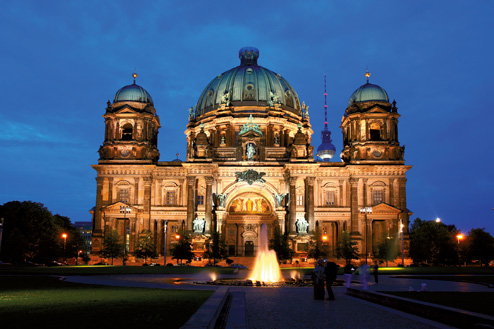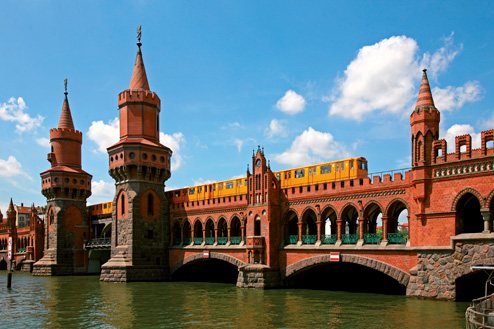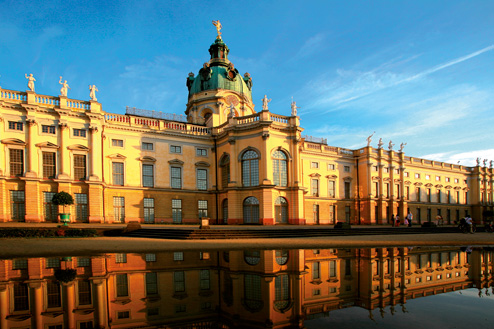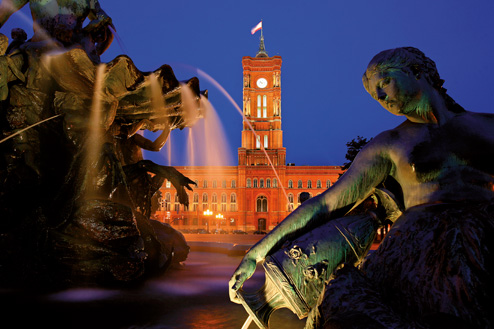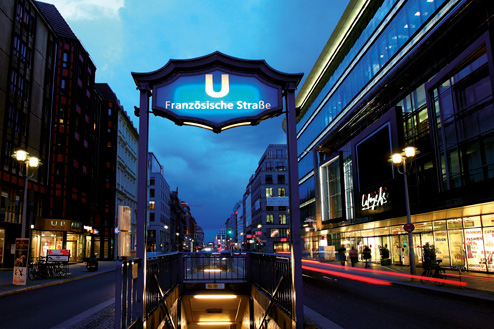Religion
The importance of organised religion has long been on the decline in Germany. A contributory factor could be that you automatically pay ‘Church Tax’ (9% of an individual’s entire income) if you want to be a member of any church.
In Berlin, where half the city’s population was once ostensibly godless Communists, Christianity plays a smaller role than in the country’s Catholic south. The predominately secular and socialist city government has come under criticism recently from some religious groups for not allowing school pupils to choose between a currently obligatory ethics class and an elective course on religion. Some 23% of Berliners are members of Germany’s main Protestant Evangelisch churches, which are predominately Lutheran and Calvinist. Another 9% are Roman Catholic, and the city’s large number of Turkish residents pushes the share of Muslims close to 6% of the total population.
Berlin once again has a small but thriving Jewish community. Judaism’s adherents have swelled to 11,000, with many immigrants from the former Soviet Union. There are also numerous Orthodox Christian and assorted Buddhist congregations in Berlin. Scientology recently opened a new centre in the city. However, the German authorities refuse to give the controversial faith of Tom Cruise and other Hollywood stars the official status of being a religion. Christmas (Weihnachten) and Easter (Ostern) are by far the two most important religious holidays in Berlin. Germans traditionally exchange gifts on Christmas Eve, but small treats are also given out annually to children on Nikolaus on 6 December. Christmas markets (Weihnachtsmärkte) are extremely popular on the Advent Sundays in the run-up to Christmas Day, though nowadays they’re more about German Gemütlichkeit (cosiness) with a cup of Glühwein (mulled wine) than celebrating the coming of Jesus. A list of links to churches and religions in Berlin can be found at http://linksammlungen.zlb.de/1.4.1.9.0.html.
In Berlin, where half the city’s population was once ostensibly godless Communists, Christianity plays a smaller role than in the country’s Catholic south. The predominately secular and socialist city government has come under criticism recently from some religious groups for not allowing school pupils to choose between a currently obligatory ethics class and an elective course on religion. Some 23% of Berliners are members of Germany’s main Protestant Evangelisch churches, which are predominately Lutheran and Calvinist. Another 9% are Roman Catholic, and the city’s large number of Turkish residents pushes the share of Muslims close to 6% of the total population.
Berlin once again has a small but thriving Jewish community. Judaism’s adherents have swelled to 11,000, with many immigrants from the former Soviet Union. There are also numerous Orthodox Christian and assorted Buddhist congregations in Berlin. Scientology recently opened a new centre in the city. However, the German authorities refuse to give the controversial faith of Tom Cruise and other Hollywood stars the official status of being a religion. Christmas (Weihnachten) and Easter (Ostern) are by far the two most important religious holidays in Berlin. Germans traditionally exchange gifts on Christmas Eve, but small treats are also given out annually to children on Nikolaus on 6 December. Christmas markets (Weihnachtsmärkte) are extremely popular on the Advent Sundays in the run-up to Christmas Day, though nowadays they’re more about German Gemütlichkeit (cosiness) with a cup of Glühwein (mulled wine) than celebrating the coming of Jesus. A list of links to churches and religions in Berlin can be found at http://linksammlungen.zlb.de/1.4.1.9.0.html.

